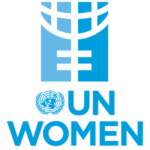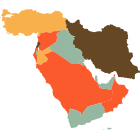Provision of Raw Sex Disaggregated Data Highlighting the Status of Women and Girls in Lebanon
Background
Lebanon faced significant challenges regarding gender equality, with women and girls often encountering systemic barriers in various aspects of life, including livelihoods, protection, and governance. To address these issues comprehensively, the United Nations Entity for Gender Equality and the Empowerment of Women (UN Women) commissioned Triangle to provide raw sex-disaggregated data highlighting the status of women and girls in Lebanon. This initiative was part of a broader effort to develop a comprehensive Gender Analysis for Lebanon, which would inform the European Union’s next programming cycle (2021-2027) and ensure gender-responsive policy-making and implementation.
Triangle’s Assignment
Triangle was tasked with collecting and analyzing primary data to provide a nuanced understanding of the situation of women and girls in Lebanon. The assignment involved developing a detailed research design, creating and implementing data collection tools, and ensuring that all processes adhered to high standards of quality, ethics, and safeguarding. Triangle worked closely with CSOs throughout the project to ensure their active involvement and to build their capacity to utilize the research findings effectively. This collaboration aimed to enhance the capacity of CSOs to utilize the research findings effectively.
Objectives
The assignment had several key objectives:
- To collect and analyze raw sex-disaggregated data on the status of women and girls in Lebanon.
- To identify the key barriers and challenges faced by women and girls in various sectors, including livelihoods, protection, and governance.
- To provide data-driven insights that inform the development of a comprehensive Gender Analysis for Lebanon.
- To enhance the capacity of CSOs to engage with and utilize the research findings.
- To support gender-responsive policy-making and implementation for the European Union’s programming cycle (2021-2027).
Research Approach & Methodology
Triangle employed a comprehensive mixed-method approach to gather data for the assignment. The methodology included:
- Literature Review: Conducting a thorough review of existing literature on gender equality and the status of women and girls in Lebanon.
- Data Collection Tools Development: Creating and refining data collection tools necessary for gathering quantitative and qualitative data, ensuring they aligned with the research objectives.
- Surveys and Interviews: Implementing surveys and conducting interviews with a diverse sample of women and girls across various regions in Lebanon to gather primary data.
- Focus Group Discussions (FGDs): Organizing FGDs to gain deeper insights into the lived experiences of women and girls, focusing on specific issues related to livelihoods, protection, and governance.
- Stakeholder Engagement: Engaging with key stakeholders, including CSOs, government officials, and community leaders, to gather diverse perspectives and ensure the research was inclusive.
- Data Analysis: Analyzing the collected data using advanced statistical methods and qualitative analysis techniques to identify key trends and patterns.
- Reporting and Dissemination: Synthesizing findings into comprehensive reports and sharing them with CSOs, policymakers, and other stakeholders to inform gender-responsive policy-making and programming.
- Capacity Building: Providing training and support to CSOs to enhance their ability to utilize the research findings and advocate for gender equality.
Project:
Data on The Status of Women and Girls in Lebanon – UN Women

Duration:
May 2021
Lebanon
